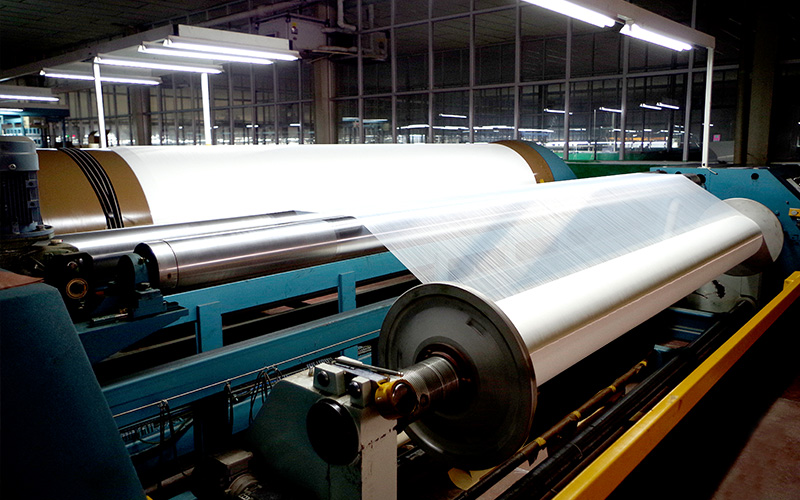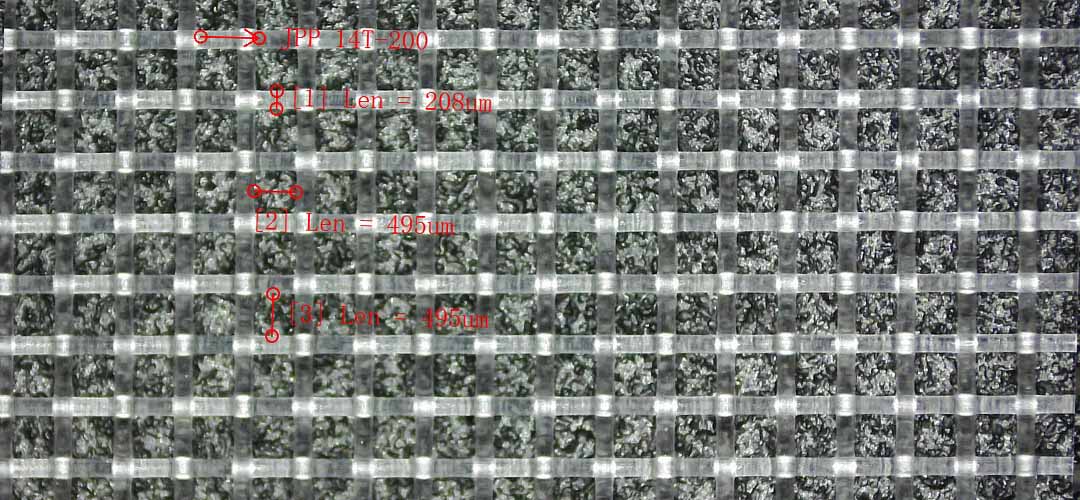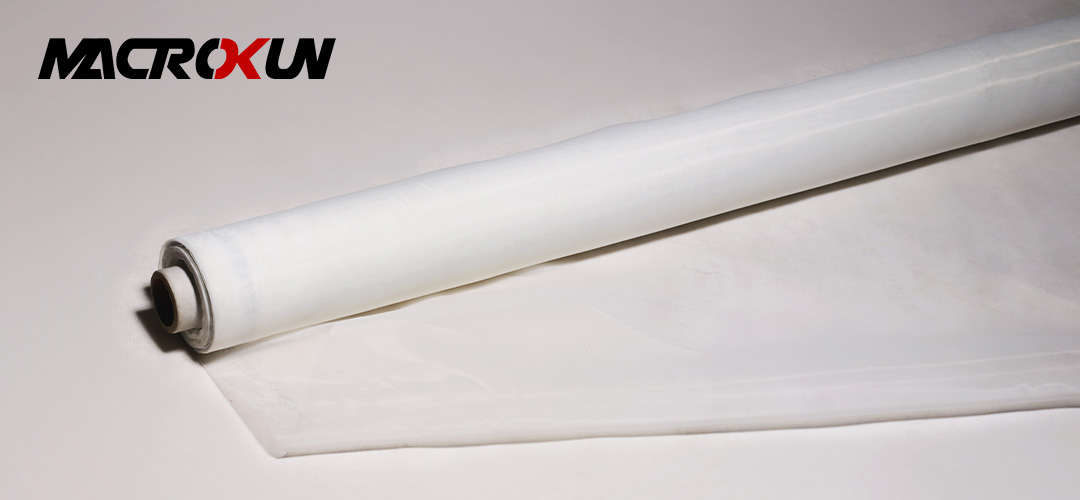When it comes to filtration processes, choosing the right filter paper is crucial to achieving optimal results. Nylon mesh filter paper is a popular choice for many industries due to its versatility and efficiency. In this article, we will explore the benefits of using nylon mesh filter paper and provide some tips on how to choose the best one for your specific process.
One of the main advantages of nylon mesh filter paper is its durability. Nylon is a strong and resilient material that can withstand high temperatures and pressures, making it ideal for a wide range of filtration applications. Whether you are filtering liquids, gases, or solids, nylon mesh filter paper can provide reliable and consistent results.

Another key benefit of nylon mesh filter paper is its excellent chemical resistance. Nylon is resistant to a wide range of chemicals, including acids, bases, and solvents, making it suitable for use in harsh environments. This chemical resistance ensures that the filter paper will not degrade or react with the substances being filtered, maintaining the purity of the final product.

In addition to its durability and chemical resistance, nylon mesh filter paper also offers excellent filtration efficiency. The fine mesh structure of nylon allows for the efficient removal of particles and impurities from the fluid or gas being filtered. This results in a cleaner and clearer final product, free from contaminants that could compromise its quality.

When choosing the best nylon mesh filter paper for your process, there are several factors to consider. The first is the pore size of the filter paper. The pore size determines the size of particles that can be effectively removed by the filter paper. For fine filtration applications, a filter paper with a smaller pore size is recommended, while larger pore sizes are suitable for coarse filtration.
Another important factor to consider is the thickness of the filter paper. Thicker filter papers offer greater durability and can withstand higher pressures, making them suitable for more demanding filtration processes. However, thicker filter papers may also result in slower filtration rates, so it is important to strike a balance between durability and efficiency.
The material of the filter paper is also an important consideration. While nylon mesh filter paper is a popular choice, there are other materials available, such as polyester and polypropylene. Each material has its own unique properties and advantages, so it is important to choose the one that best suits your specific filtration needs.
In conclusion, nylon mesh filter paper offers a range of benefits for filtration processes, including durability, chemical resistance, and filtration efficiency. By choosing the right pore size, thickness, and material for your specific process, you can ensure that you achieve optimal results and maintain the quality of your final product. Whether you are filtering liquids, gases, or solids, nylon mesh filter paper is a reliable and effective choice for a wide range of applications.
When selecting the best nylon mesh filter paper for your process, several critical factors must be taken into account to ensure optimal performance and efficiency. First and foremost, the mesh size is a primary consideration. The mesh size determines the particle retention capability of the filter paper, which directly impacts the quality of the filtration process. A finer mesh size is suitable for applications requiring the removal of smaller particles, while a coarser mesh may be more appropriate for larger particles. Therefore, understanding the specific requirements of your application is essential in making an informed decision.
In addition to mesh size, the thickness of the nylon mesh filter paper plays a significant role in its performance. Thicker filter papers tend to have higher strength and durability, making them suitable for processes that involve high flow rates or aggressive chemicals. Conversely, thinner filter papers may be more appropriate for applications that require a more delicate touch. It is crucial to balance the need for strength with the desired filtration efficiency, as this can affect both the longevity of the filter and the overall effectiveness of the filtration process.
Another important factor to consider is the chemical compatibility of the nylon mesh filter paper with the substances being filtered. Nylon is known for its excellent chemical resistance, but it is still essential to verify that the specific nylon material used in the filter paper is compatible with the chemicals in your process. This compatibility ensures that the filter paper will not degrade or leach harmful substances into the filtered material, which could compromise the integrity of the final product. Conducting thorough compatibility tests can save time and resources in the long run, preventing potential issues that may arise from using unsuitable materials.
Furthermore, the temperature tolerance of the nylon mesh filter paper is a critical aspect to evaluate. Different applications may involve varying temperature ranges, and it is vital to select a filter paper that can withstand the specific conditions of your process. High temperatures can lead to the degradation of the filter material, resulting in reduced performance and potential contamination of the filtered product. Therefore, understanding the thermal properties of the nylon mesh filter paper is essential for ensuring its reliability and effectiveness in your application.
Cost is another factor that cannot be overlooked when choosing nylon mesh filter paper. While it may be tempting to opt for the least expensive option, it is crucial to consider the long-term value and performance of the filter paper. Investing in high-quality filter paper may result in lower replacement costs and improved efficiency in the filtration process. Additionally, evaluating the supplier’s reputation and customer service can provide insights into the quality and reliability of the product, further influencing your decision.
Lastly, the ease of use and installation of the nylon mesh filter paper should be considered. Filter papers that are easy to handle and install can significantly reduce downtime and improve overall productivity. Look for features such as pre-cut sizes or customizable options that can streamline the filtration process. By taking these factors into account, you can make a well-informed decision that aligns with your specific needs and enhances the efficiency of your filtration process. Ultimately, the right nylon mesh filter paper can lead to improved product quality, reduced operational costs, and a more efficient workflow, making it a vital component in various industrial applications.
When selecting the best nylon mesh filter paper for your specific process, it is essential to consider various brands available in the market, as each offers unique features and benefits that can significantly impact your filtration efficiency. The comparison of different nylon mesh filter paper brands begins with an evaluation of their material quality. High-quality nylon mesh is known for its durability and resistance to chemicals, which is crucial in maintaining the integrity of your filtration process. Brands that utilize premium-grade nylon often provide a more reliable product, ensuring that the filter paper can withstand rigorous use without compromising performance.
In addition to material quality, the mesh size is another critical factor to consider. Different brands offer a range of mesh sizes, which can affect the filtration rate and the clarity of the filtrate. For instance, a finer mesh size may be ideal for applications requiring high purity, while a coarser mesh can facilitate faster flow rates in less critical processes. Therefore, understanding the specific requirements of your application will help you choose a brand that offers the appropriate mesh size for optimal results.
Moreover, the availability of various pore sizes within a brand’s product line can also influence your decision. Some brands provide a comprehensive selection of pore sizes, allowing for greater flexibility in filtration applications. This versatility can be particularly beneficial in industries such as pharmaceuticals and food processing, where different stages of production may require distinct filtration specifications. By comparing the pore size options across brands, you can identify which one aligns best with your operational needs.
Another aspect to consider is the brand’s reputation and customer feedback. Established brands with a history of reliability and customer satisfaction often provide a level of assurance regarding product performance. Reading reviews and testimonials can offer insights into the experiences of other users, helping you gauge the effectiveness and durability of the nylon mesh filter paper. Additionally, brands that offer excellent customer support and technical assistance can be invaluable, especially when navigating complex filtration challenges.
Price is also a significant factor in the decision-making process. While it may be tempting to opt for the most affordable option, it is crucial to balance cost with quality. Investing in a reputable brand that offers superior nylon mesh filter paper may yield better long-term results, reducing the need for frequent replacements and minimizing downtime in your operations. Therefore, conducting a cost-benefit analysis can help you make an informed choice that aligns with your budgetary constraints while ensuring optimal filtration performance.
Furthermore, sustainability is becoming an increasingly important consideration in the selection of filter materials. Brands that prioritize eco-friendly manufacturing processes and offer recyclable or biodegradable options can contribute to a more sustainable operation. As businesses strive to reduce their environmental impact, choosing a nylon mesh filter paper brand that aligns with these values can enhance your corporate responsibility efforts.
In conclusion, the comparison of different nylon mesh filter paper brands involves a multifaceted evaluation of material quality, mesh size, pore size options, brand reputation, pricing, and sustainability. By carefully considering these factors, you can select a brand that not only meets your filtration needs but also supports your operational goals. Ultimately, the right choice will enhance your process efficiency, ensuring that you achieve the desired outcomes while maintaining high standards of quality and performance.
Pre: How Nylon Mesh Screen Fabric Improves Filtration Performance
Next: Using Nylon Mesh for Filtration Media in Specialized Applications

MACROKUN has established long-term and stable cooperative relations with many transportation companies such as China Post, DHL, FEDEX, USPS, UPS, etc. Of course, MACROKUN can also provide air and sea transportation. The powerful logistics system enables all MACROKUN'S Printing Mesh, Filter Mesh and Filter Bags and so on to be easily and efficiently transported to any place. For quotes and inquiries, please email our sales team.





